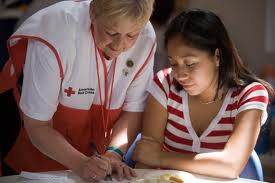 The U.S. population is aging as the baby boomers begin reaching their golden years. This means our nation is facing more people with the declining function, memory and cognition associated with aging.
The U.S. population is aging as the baby boomers begin reaching their golden years. This means our nation is facing more people with the declining function, memory and cognition associated with aging.
The good news is, there is evidence that some lifestyle choices can ward off these declines. A new systematic review looks at the benefits associated with formal volunteering among older adults.
The review, published in Psychological Bulletin, analyzed 73 studies in total including descriptive, cross-sectional, prospective cohort studies, and one randomized controlled trial.
The body of data demonstrates that volunteering during one’s older years is associated with reduced symptoms of depression, better self-reported health, fewer functional limitations, and lower mortality. The researchers deduce that these improvements are a result of increased social, physical, and cognitive activity sparked by volunteering. This increased activity, they said, triggers biological and psychological mechanisms that are typically associated with a reduced risk for developing dementia.
Cornell gerontologist and EBL-founder Professor Karl Pillemer is a proponent of volunteer activities for people in their 60s, 70s and 80s. He has conducted research that found that older adults who get involved in creating a sustainable society and conserving natural resources, are also helping themselves.
“Research shows that citizen science activities provide a wonderful opportunity to achieve two goals at once: Adding to our knowledge about areas important to quality of life for people, while also providing opportunities for rewarding and meaningful activity,” he said. “And citizen science activities can be adapted for any life course stage, from elementary school students to retirees.”
This most recent review makes recommendations for future research to help us better understand how volunteer activities benefit older adults. Specifically they recommend using more objective measures of psychosocial, physical, and cognitive functioning, exploring individual differences in the benefits associated with volunteering, analyzing volunteers’ specific jobs in order to identify which assignments are most beneficial, and investigating how volunteering relates to other activity later in life.
The take-home message: One positive step older adults can take to preserve their health is volunteering. The evidence shows it makes a real difference in maintaining both physical and cognitive function later in life.



Speak Your Mind